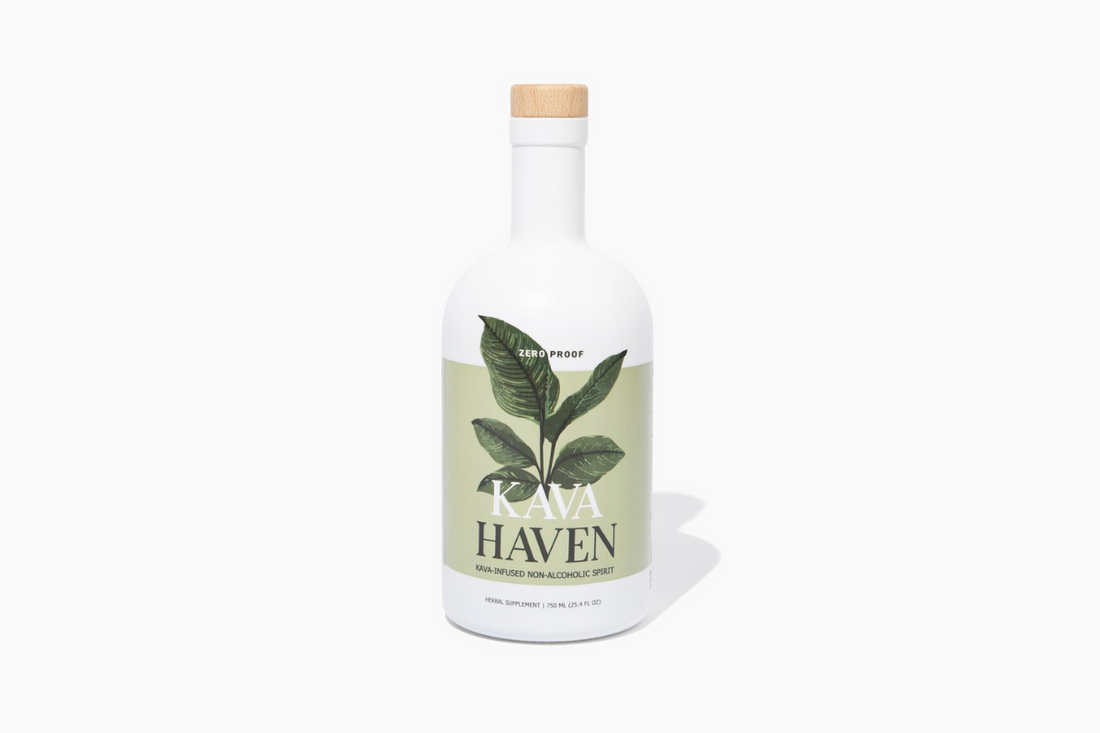Ever found yourself in need of a break and wondered whether kava or alcohol is the better choice for relaxation? Both are popular for unwinding after a stressful day, or as an uplifting crutch in social settings, but they affect our brains in quite different ways. Dive in with us as we explore how these two substances interact with the brain, focusing on their effects through the neurotransmitter system and beyond.
GABAergic Activity: The Key to Relaxation
What is GABA? GABA (gamma-aminobutyric acid) is the brain’s primary inhibitory neurotransmitter. It helps reduce neuronal excitability throughout the nervous system, promoting relaxation, reducing anxiety, and inducing sleep. When GABA binds to its receptors, it creates a calming effect, making it crucial for managing stress and anxiety.
Kava and GABA: Kava, derived from the root of the Piper methysticum plant, contains active compounds known as kavalactones. These kavalactones enhance GABA’s binding to its receptors, boosting GABAergic activity and leading to a calming and relaxing effect. Unlike alcohol, kava doesn’t bind directly to GABA receptors but rather enhances GABA’s effects indirectly, promoting relaxation without significant impairment.
Alcohol and GABA: Alcohol, on the other hand, directly binds to GABA_A receptors, increasing GABA’s inhibitory effects throughout the brain. This results in sedation, reduced anxiety, and impaired motor function. Chronic alcohol use can alter GABA receptor function, leading to tolerance and dependence.
Dopamine System: Euphoria and Reinforcement
What is Dopamine? Dopamine is a neurotransmitter that plays a key role in the brain’s reward system, associated with pleasure, motivation, and reward. When dopamine is released, it creates a sense of euphoria and well-being. It’s also involved in regulating mood, attention, and learning.
Kava and Dopamine: Kava’s effects on the dopamine system are less pronounced. It may have some indirect effects on dopamine transmission, contributing to a mild sense of euphoria and well-being.
Alcohol and Dopamine: Alcohol significantly increases dopamine release in the brain’s reward pathway, particularly in the nucleus accumbens. This increase contributes to alcohol’s reinforcing properties and potential for abuse and addiction.
Glutamate System: Excitatory Neurotransmission
What is Glutamate? Glutamate is the most abundant excitatory neurotransmitter in the brain, playing a crucial role in cognitive functions such as learning and memory. It facilitates signal transmission between nerve cells but excessive glutamate activity can lead to excitotoxicity, damaging or killing neurons.
Kava and Glutamate: There is limited evidence on kava’s direct effects on the glutamate system. However, its enhancement of GABAergic activity indirectly affects glutamate activity by inhibiting excitatory neurotransmission.
Alcohol and Glutamate: Alcohol inhibits NMDA (N-methyl-D-aspartate) receptors, a subtype of glutamate receptors. This inhibition contributes to alcohol’s depressant effects on the central nervous system. Chronic alcohol use can lead to upregulation of NMDA receptors, causing withdrawal symptoms when alcohol use is stopped.
Other Neurotransmitter Systems
Kava: Kava may also affect other neurotransmitter systems, including serotonin and norepinephrine, but these effects are less pronounced compared to its GABAergic activity.
Alcohol: Alcohol impacts multiple neurotransmitter systems, including serotonin, norepinephrine, and acetylcholine. These interactions contribute to alcohol’s wide-ranging effects on mood, cognition, and behavior.
Overall Effects and Differences
Both kava and alcohol produce relaxation and can reduce anxiety, but kava tends to have fewer cognitive and motor impairments compared to alcohol. Kava is generally considered non-addictive and is less likely to cause tolerance and dependence. However, excessive kava use can lead to hepatotoxicity in some individuals, though this is rare.
Conclusion: Kava vs. Alcohol
In summary, both kava and alcohol enhance GABAergic activity but through different mechanisms and with varying effects on the brain and behavior. While both can promote relaxation and reduce anxiety, alcohol’s broader impact on multiple neurotransmitter systems leads to a higher risk of dependence and adverse health effects. Kava offers a non-addictive alternative with a more selective action on the GABA system, resulting in fewer cognitive and motor impairments.
By understanding the effects of kava and alcohol on the brain, you can make informed decisions about which beverage is best suited for your relaxation needs. If you’re seeking a relaxing beverage with fewer risks, kava may be the better choice.
Meet Kava Haven: Kava-Infused Non-Alcoholic Spirit
Ready to experience the benefits of kava firsthand? Try Kava Haven’s delicious kava-based non-alcoholic spirit! we have meticulously crafted a kava-infused non-alcoholic spirit that encapsulates the essence of relaxation and social connection. Our product is thoughtfully formulated with the finest kava extract, invigorating ginger juice, zesty lemon juice, and other premium ingredients. Kava Haven provides a refreshing alternative to traditional spirits, allowing you to indulge in moments of tranquility and elevate your social experiences. Whether sipped neat, on the rocks or mixed into your favorite cocktail recipe, Kava Haven seamlessly integrates into any occasion, sparking conversations and fostering a vibrant atmosphere.




